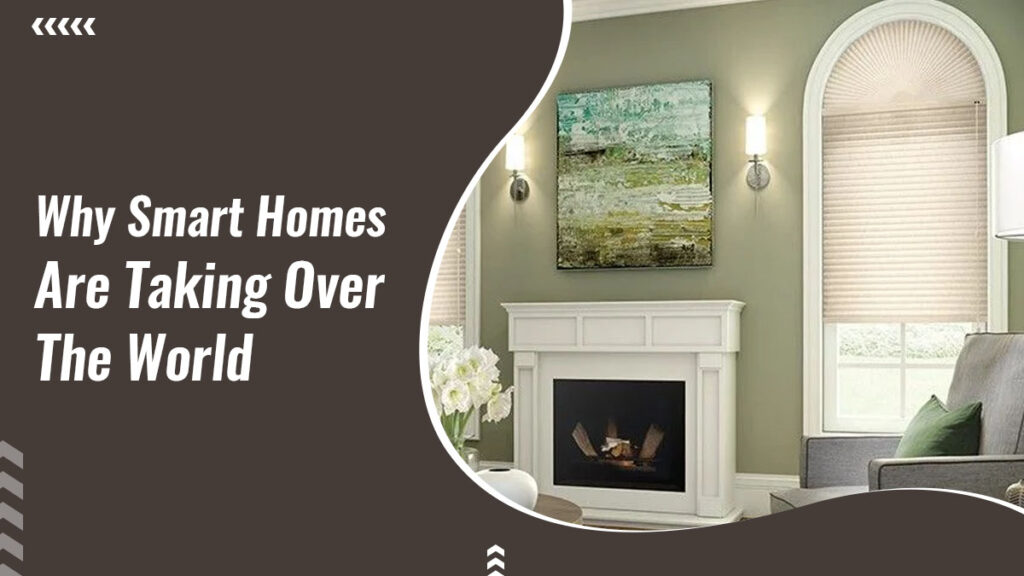
Smart homes are a significant step forward in the evolution of residential spaces, with the primary goal of making your life more comfortable, convenient, secure, entertaining, and sustainable. Such homes, powered by gadgets and computing technologies, were once the exclusive domain of the wealthy but not any longer. Smart shades technologies are now more affordable, and almost every other average household has some form of smart home automation.
Greater standardization
One of the most difficult aspects of creating a smart home is the competing range of platforms and standards. To capture the largest customer base, manufacturers of smart home devices must increasingly ensure that their products and services will work on platforms provided by Amazon, Google, Samsung, and Apple. And consumers face the risk of becoming “tied in” to a specific network provider, which can often limit their options if a particular tool or device they require does not play well with their preferred platform. There’s also the inconvenience of using a slew of different apps to set up and control all of the various devices from various manufacturers in your smart home.
Household robots
This movement began with robotic vacuum cleaners and lawnmowers. However, as artificial intelligence advances, we can expect them to become smarter and capable of assisting us with a broader range of tasks. Domestic robots promise a future in which machines will perform day-to-day tasks, allowing us to spend our valuable time on things other than chores and routine maintenance.
In-home healthcare is becoming smarter
In-home smart healthcare has the potential to alleviate some of the strain placed on traditional healthcare channels – doctors and hospitals – as life expectancy rises and the elderly population grows. Some of this will be accomplished through preventative measures, such as wearables that assist us in leading a healthier lifestyle by monitoring our activity levels, sleep quality, and nutrition. Other devices will provide interventionist services, such as remotely connecting with medical practitioners, alerting caregivers when an older adult falls in their home, and even diagnosing illnesses using AI.
Reasons why smart homes are taking over the world
You might think of smart home automation as a cool way to keep up with the latest technology or as a way for homeowners to brag about their latest toys. Still, home automation has some incredible (and undeniably) practical benefits.
The ability to adapt to new devices and appliances
No matter how cutting-edge your appliances appear today, more recent, more impressive models will be developed as time passes. Aside from that, you’ll most likely add to your device arsenal as you replace older ones or discover new technology to complement your indoor and outdoor spaces. Seamlessly integrating these new devices will make your job as a homeowner much easier and will allow you to continue upgrading to the latest lifestyle technology.
Improving home security
When security and surveillance features are integrated into your smart home network, your home security can improve greatly. Home automation systems, for example, can link motion detectors, surveillance cameras, automated door locks, and other tangible security measures throughout your home to activate them all from a single mobile device before going to bed. You can also receive security alerts on your various devices based on the time of day and monitor activities in real-time, whether you’re at home or halfway around the world.
Home functions can be controlled remotely
Don’t underestimate the power of remote control over your home’s functions. On a particularly hot day, you can instruct your house to cool down just before you get home from work. If you need to start dinner but are still at the store, you can set your oven to preheat while you’re still on your way home. You can even check to see if you left the lights on, who is at your front door, and if you have turned off all of your media while you are away.
Enhanced energy efficiency
It is possible to make your space more energy-efficient depending on how you use your smart-home technology. For example, a smart programmable thermostat that learns your schedule and temperature preferences and then suggests the best energy-efficient settings throughout the day can give you more precise control over your home’s heating and cooling. Lights and motorized shades can be programmed to switch to an evening mode as the sun sets, or lights can be programmed to turn on and off automatically when you enter or leave a room, so you never waste energy.
Better appliance functionality
A smart TV will assist you in locating better apps and channels to find your favorite programming. A smart oven will help you cook your chicken to perfection without worrying about overcooking or undercooking it. An intelligently designed home theater and audio system can make managing your movie and music collection a breeze when entertaining guests. Finally, connecting your appliances and other systems with automation technology will improve appliance effectiveness and make your home life much easier and more enjoyable overall.
Insights into home management
There’s also something to be said for your ability to glean information about how your house works. Over time, you can track how often you watch TV (and what you watch), the types of meals you cook in your oven, the foods you keep in your refrigerator, and your energy consumption habits. You may be able to analyze your daily habits and behaviors based on these insights and make changes to live the lifestyle you desire.
Wrapping it up
Smart homes are undeniably becoming more popular among consumers and the market. The inevitable evolution of technology necessitates the development of novel devices that will make your life easier. Real estate investors and homeowners alike benefit from the conveniences that these devices offer. These technological advancements are only the beginning of a more comfortable, secure, and improved personal home.